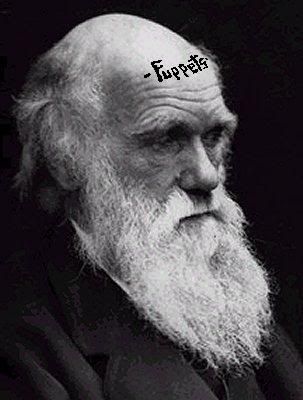
On this day, 200 years ago, a pillar of human genius was born. Charles Robert Darwin sprang from twixt his mom's thighs at the family home in Shrewsbury, Shropshire, England. His family was composed of Unitarian Freethinkers, who had slowly warmed up to the Anglican Church. He studied medicine, apprenticing under his father, Erasmus Darwin, and treating the poor of his hometown.
Tiring of the dull lectures and the distress of surgery, he gravitated towards the study of the nearby marine biology, and made some contributions which he presented to The Plinian Society, a student natural history group.
Having read Lamarck's work, (which, in a severe summary, states that living creatures develop new physical traits during life, and pass these new traits onto their offspring. For example, a giraffe strains it's neck ever higher to reach leaves, and having "stretched" it's neck 2 more inches during it's life, passes on this extra 2 inches to it's offspring. A good idea, but not correct) and his own father's essays on the subject, he found the ideas wanting and never forgot this.
Seeing Darwin ignore his medical studies, his father sent his ass to Cambridge, with the hopes that a Bachelors of Arts would allow his son to become an Anglican parson. It was at Cambridge, and through his professors there, that he grew his love for the natural world and for the sciences and theories regarding it. He read extensively all the great ideas of the time regarding the natural world and the variety of flora and fauna found within. It was then that he was proposed to join a two-year expedition to map the coast of South America, led by Captain Robert FitzRoy of the HMS Beagle. He was to be a "gentleman companion" to the captain (for many captains at the time were learned people and needed other like-minded fellows to entertain them on these long voyages. It seems sailors were not good for enlightening dinner conversation), and spent what turned out to be a 5-year voyage collecting natural specimens and making geological observations.
This is a map showing the incredible path which was taken by the HMS Beagle on this journey. (Click to enlarge)
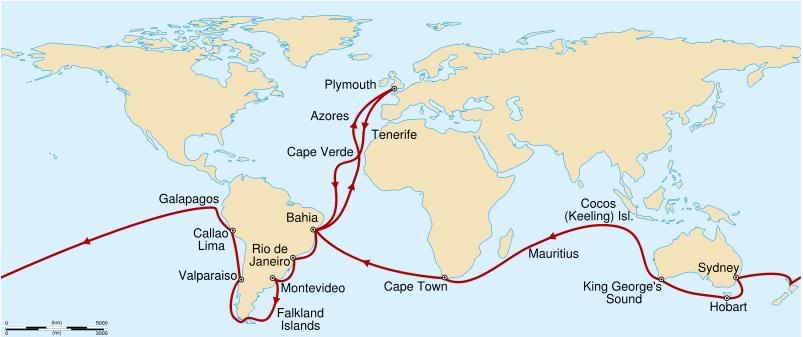
He made countless interesting discoveries, identifying fossils of new-to-science species, and just absorbing the wonder of the natural world. This is an image of Darwin around this time.
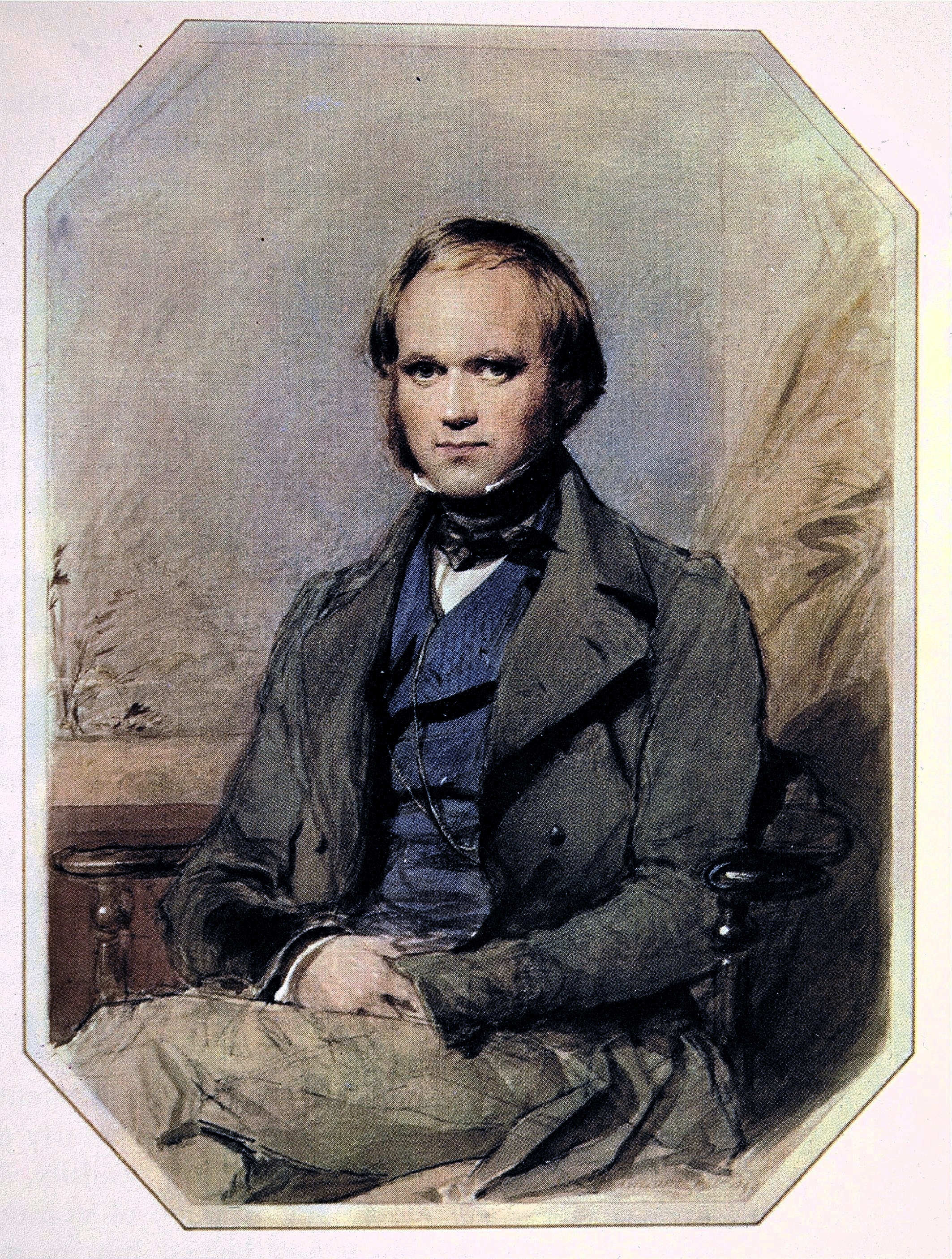
One of the crucial realizations that Darwin had on this trip was that there was no unbridgeable gap between humans and animals. This voyage would set the base for what became, along with Copernicus and his explorations of the universe, possibly the single most earth-shaking and genius train of thought in all of human history.
He, along with several others, even throughout the ancient history of man, had seen that species change, or evolve, over time, and that each species "seems" perfectly suited for it's environment because of this. For nearly all people living in Darwin's time, this was seen as evidence that god had created each species specifically to suit each environment. Darwin saw past this conceit and realized that it was the other way around. The environment dictates which INDIVIDUALS are best suited for it, and those INDIVIDUALS then manage to thrive and reproduce, creating more copies of themselves (offspring), which are also better suited to thrive. Of course, the opposite also holds true, and if an individual creature is born with the inability to thrive in it's environment, it will not reproduce and will therefore eliminate the negative traits and characteristics of the overall species. This happens over many millenia, which Darwin saw through his geologic studies and his collections of fossils. He also noted that traits do not just appear once, but sometimes separately appear in widely varying branches of the natural world, separated by hundreds of thousands of millions of years. This explanation for the variety of life he named his Theory of Evolution Through Natural Selection. The whole name must be used, for people shorten it to "theory of evolution" which is not specific enough. It was accepted by some that the species of the world had evolved into being, although the term "evolution" itself was quite controversial (people believed that the world as it existed then had always existed the exact same way, by god's will), but the crucial aspect is the mechanism by which this came about, and that is NATURAL SELECTION.
Charles Darwin understood the implications of this. It made the idea of a god who oversees every single infinitely minute detail of creation unnecessary. Because of this and because of the sociopolitical climate of the times, he waited twenty years before publishing his ideas. In this time he exhaustively catalogued and researched and explored as much as he could, for he wanted to gather irrefutable evidence, evidence which would show that he was speaking a deep truth about the natural world and not just hypothesizing philosophical ideas, (something his detractors to this day claim and misunderstand).
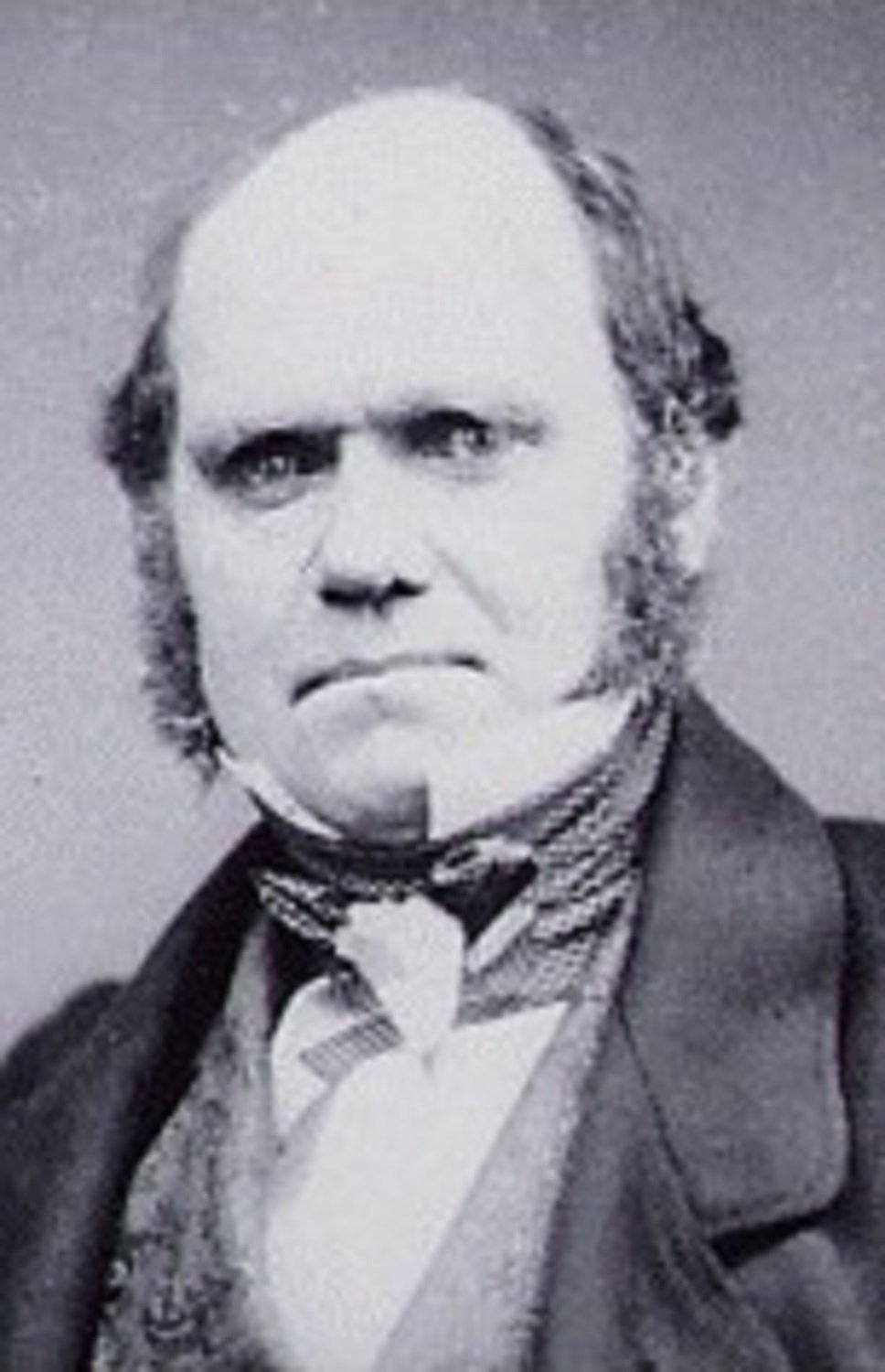
By the time Charles Darwin published his book, he was a man in his fifties. Before he was finished with his book however, a fellow scientist, Alfred Russell Wallace, sent him a treatise in which he expounded the exact same idea, but without the exhaustive natural evidence. Charles Darwin was afraid of being undercut, but being a man of principles, decided to share the stage and offered Mr. Wallace an opportunity for a joint presentation to the Linnean Society. This was done, although Darwin did not attend due to the death of his very young son. The idea received little fanfare at the time. Darwin proceeded to work at a feverish pace for the next thirteen months to finish his book. The book was published and went on sale in November of 1859. The full title of this masterwork of human genius is
On the Origin of Species by Means of Natural Selection, or The Preservation of Favoured Races in the Struggle for Life
His essential theory was outlined in a small section at the beginning of the book.
As many more individuals of each species are born than can possibly survive; and as, consequently, there is a frequently recurring struggle for existence, it follows that any being, if it vary however slightly in any manner profitable to itself, under the complex and sometimes varying conditions of life, will have a better chance of surviving, and thus be naturally selected. From the strong principle of inheritance, any selected variety will tend to propagate its new and modified form. . .
There is grandeur in this view of life, with its several powers, having been originally breathed into a few forms or into one; and that, whilst this planet has gone cycling on according to the fixed law of gravity, from so simple a beginning endless forms most beautiful and most wonderful have been, and are being, evolved.
This idea, this genius bit of human cleverness, has sparked a revolution the likes of which humanity has never seen before. To this day it inspires and angers. People claim it to be an affront to their personal gods, or use it to lay false ideas about Darwin, such as the old lie that he said humans came from monkeys. The unbearable truth for these idiots is that apes, monkeys, humans, protozoa, trees, lichens, and dung beetles are all RELATED and all have come to exist as the current end results of millions upon hundreds of millions of years of evolution through natural selection. There was a time, and it lasted for nearly 2 BILLION years according to every bit of geological evidence we can find, where the entire planet Earth consisted of water, rocks, and single celled organisms, each different type taking up residence in a slightly different type of environment, from frozen wastes to deep volcanic chasms, to idyllic tide-pools in equatorial islands. It is from these organisms that the whole of our natural world is derived. This insight is quite possibly the single greatest achievement of the human mind, and forms the basis for all of modern biology. The relatively new science of genetics and the discovery and understanding of DNA and what it is and does, only served to strengthen Darwin's ideas, and to ultimately prove quite conclusively (although no to some who choose to remain ignorant) of the interconnectedness, of the innate inter-relation of every single bit of living matter upon our planet Earth. Not a single organism, plant, fungus, virus, lichen, or algae exist that does not contain DNA in some form, using it to encode and decode the "instructions" by which it's internal cellular mechanisms run.
Charles Darwin had to fight for recognition of the truth of what he saw and wrote of, and had several prominent scientists take up his cause. As he grew older his fame grew ever more, and his influence began to be truly appreciated. Upon his death it was requested by Darwin's colleagues that the great genius be buried in Westminster Abbey, close to John Herschel and Isaac newton, two other titans of human thought. My man Darwin was a bad motherfucker, and today would have been his 200th birthday.
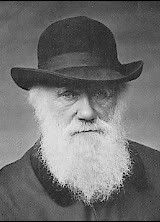
Happy Birthday from -FUPPETS- . To close out this post, -FUPPETS- includes one of the greatest tattoos ever, on one of the coolest women ever, our friend "Spike."


2 comments:
A well-deserved celebration for this genius of mankind. It's upsetting to hear however of the increasingly ecological ruination of the Galapagos Islands. One hopes that the powers that be there (hello Ecuador) see sense and preserve this ecological precious stone from the ravages of man.
They seem to be trying to balance the revenue they make by allowing thousands of people to tread upon these islands every year as "tourism" with the damage that is caused to these delicate ecosystems. It is a shame that money is part of the equation at all.
Post a Comment